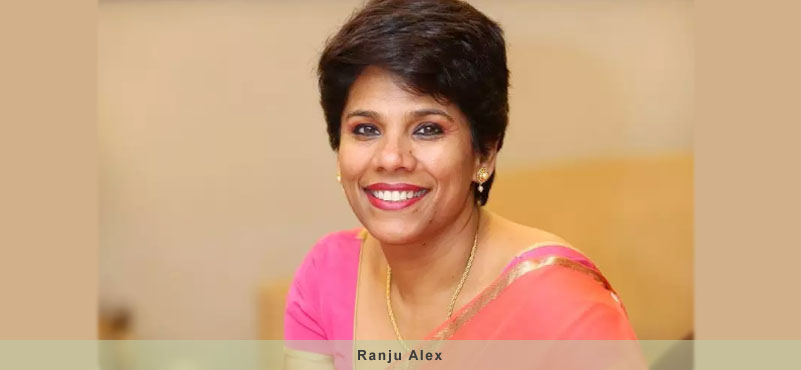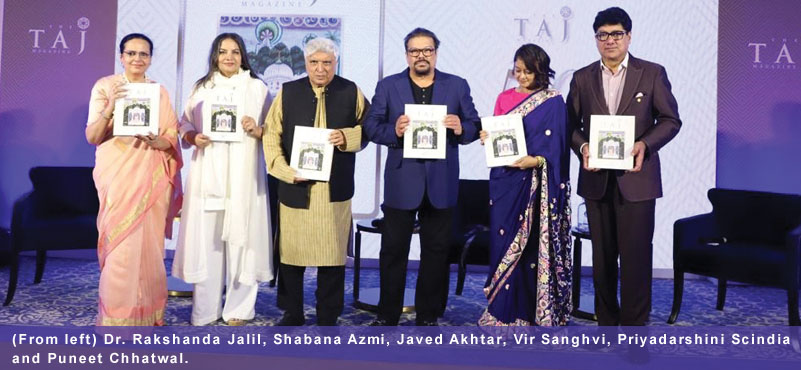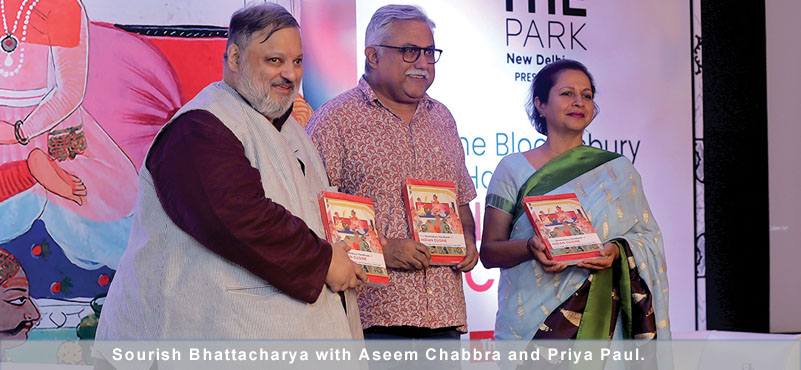Times have changed and so have the consumers. The industry defines them by different names – ‘Generation Y’, millennials or the new-age traveller. Leaving the variations in the jargon aside, it is beyond a debate that today’s traveller has far greater expectations from hotels, certainly more than clean linen and a fancy restaurant. They expect hotels to understand and preempt their preferences and provide them with a personalised service. What makes this transformation even more profound is that it is an irreversible process, a one-way street, so to speak.
Hotels, too, have responded to the challenge and are increasingly engaging the clientèle in a more personal manner, seeking to curate a unique experience for each guest.
We asked some of the senior stakeholders of the industry to share their thoughts on the rise of the experiential quotient in the business of hospitality. They reflected on how their hotels were interweaving the experiential factor into their offerings.
Here are some insights from Ajay Bakaya, Executive Director, Sarovar Hotels; Raj Rana, Chief Executive Officer, South Asia, Radisson Hotel Group; Arif Patel, VP sales, marketing, distribution & loyalty – AccorHotels, ACCORHOTELS INDIA, and Shwetank Singh, Vice President – Development & Asset Management- InterGlobe Hotels (IGH).
Technology a driver of the change; leisure better suited than the business segment, says Ajay Bakaya
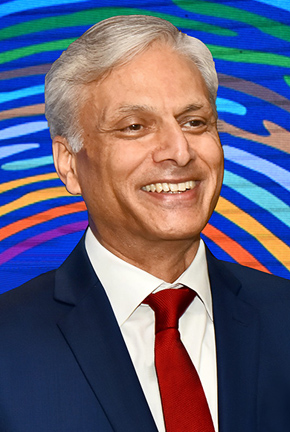
Executive Director, Sarovar Hotels
On the need for the ‘experiential’ factor
That it was ‘critical’ for hotels to have the experiential quotient in their offering was a rather wrong word to describe the trend, felt Ajay Bakaya, Executive Director, Sarovar Hotels. “Is it going to be the way of things, going forward? Yes,” he added. He argued that it was not as if “experiences did not matter” for consumers and hotels a few decades ago. He did, however, note that the changing consumer profile had added heft to the concept of experiences.
It was difficult for hotel chains to curate experiences as most of them were based on the concept of a standardized service and offering, he felt. “It is challenging for hotel chains to replicate experiences. We are an 80 hotels company and are soon going to have 100 hotels,” he said. He informed that leisure destinations had more to offer and thus were more suited for an experiential-based product. Being a business hotel, the focus was more on functionality than that of the ‘experiential quotient’, he seemed to have suggested.
On what has driven the change
He noted that the experiential factor was going to come from shared spaces and experiences. “So guests may prefer Ala carte over room service or prefer to work in the business centre than in the confines of their rooms,” he said. He mentioned that such developments took time but were “bound to occur.”
A transformed consumer had catalysed this transition, positioning experiences as a noteworthy element in driving demand. Taking stock of this transformation, Ajay Bakaya noted that a plethora of changes – social, economic, and behavioural had all contributed to this transition. “The younger generation is choosing to settle down at an older age, is living alone and has a higher disposable income than before. They are constantly on the lookout for a change. They are looking for hotels that care about their guests,” he listed out. He suggested that hotels needed to display intelligence and display pro-activeness in ensuring a seamless experience for the guests. “Technology has enabled this to happen to a large extent,” he added.
Emotional quotient drives repeat business; the quantum of tech infusion a challenge, says Raj Rana
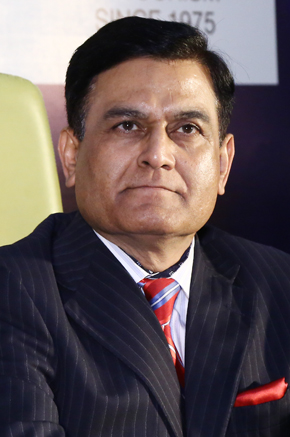
Chief Executive Officer, South Asia, Radisson Hotel Group
How critical has it become to have the ‘experiential factor’ in the hospitality offering?
We live in an age of experience where the only thing that creates a lasting impression in the minds of guests and consumers are personalized and thoughtful experiences. Often, these are what build competitive advantage for hotels and bring repeat guests as hospitality industry runs primarily on emotional quotient across the globe.
At Radisson Hotel Group, our brand promise, ‘Every Moment Matters’, is strongly founded on the power of experiences where we commit ourselves to deliver memorable moments every day, everywhere, every time. These moments give us a unique opportunity to differentiate ourselves and advance on our journey from being ‘simply good’ to becoming ‘truly great’.
Our eight unique hotel brands offer a brand-differentiated, 360-degree guest experience empowered by a “Yes I Can!”SM service philosophy across four attributes: Feel at ease, Experience the locale, Enjoy memorable moments and Brilliant Basics.
To what would you attribute this growing trend and what has changed in a consumer? What is driving the segment?
Today’s consumer is well informed as the world has become smaller, accessible and more connected. Being well travelled, they want to make choices that offer them enough diversity in experiences yet are consistent in delivering quality and service. Often the reason they prefer one hotel chain over another is that it has managed to delight them by easing off their check-in, check-out process, remembering their food preferences, surprising them with a service they enquired for during the previous stay or even wowing them with a personal human element such as personalized message or greeting when they arrive. The consistency and seamlessness with which these gestures follow a guest across various brands and network locations of a hotel chain are what truly uplifts guest experience.
Hospitality is being redefined in the way hotels interact with this segment of guests who have plenty of choices available. Technologies such as AI and machine learning, IoT etc are being deployed to create personalized moments and immersive guest experiences. The challenge for hotels in the coming years, however, will be how much of technology to implement because of varying adoption rates across diverse audience backgrounds and its early entry in homes than hotels. We believe guest experience should be that of a user, not a learner. And in that respect, it will be important to ensure that hotels don’t become one-night learning centres of technology.
Guests looking for an immersive experience; AccorHotels leveraging tech solutions, says Arif Patel

VP – SALES, MKTG, DISTRIBUTION & LOYALTY, ACCORHOTELS INDIA
How critical has it become to have the ‘experiential factor’ in the hospitality offering?
There has been a fundamental shift in traveller stay expectations, where we are seeing guests moving away from focusing on amenities provided by hotels to demanding experiential stays instead. This is not confined to the stay itself but extends right from the planning stages of a trip until after the stay is completed. Today, travellers are looking for an immersive experience, which is personalized and emotionally and mentally fulfilling. Whether it is understanding the local culture and traditions, interacting with natives, or even enjoying an authentic culinary journey, guests want it all.
At AccorHotels, we pride ourselves on identifying, understanding and addressing guests needs, and demands. Moreover, across all our hotels, we ensure our always guests ‘Feel Welcome’ throughout their experience with us – whether it is making a booking through the AccorHotels’ app or evening during check-ins. To do this effectively, we leverage multiple technological solutions. One such solution is the AccorHotels Digital Card (ACDC), wherein we curate experiences based on the information provided by guests on food habits or choice of in-room amenities, birthday/anniversary dates, hobbies and interests and many more such details which eventually makes the guest feel special and welcomed. This enables us to incorporate several touch-points throughout the stay experience from personalised hand-written notes to resonating with guests’ interests or hobbies using endearing towel art or using petals/ leaves for bed art.
Many of AccorHotels properties in India and around the world take inspiration from the culture of the city or country and this is reflected in the architecture of the hotel, interiors of the rooms, use of art and artistic creations, and food and beverage experiences. For example, Novotel Kochi Infopark’s façade features a structure which resembles Kettuvallam or ‘boat with knots’, reflecting on the importance of the fisherman of Kerala. While at Novotel Lucknow Gomti Nagar the lobby is designed with intricate chikankari and jaali work, reverberating an ethnic feel to the hotel. Our chefs across all our hotels prepare locally inspired wholesome meals to ensure guests are able to enjoy local delicacies. Moreover, some of our hotels also offer personalized and customized excursions for smaller groups that highlight local attractions and events enabling guests to feel the pulse of the city and truly create a truly memorable experience while building a connection to the city.
To what would you attribute this growing trend and what has changed in a consumer? What is driving the segment?
There are several factors that have shaped the way guests are looking at hotel stays. I think the most important and underlying factor that has contributed to this is the fact that people are looking for new and exciting experiences to widen their horizons. They see travel as one way of doing so and by extension, they also look at how their hotel stays can also give them a more immersive experience. Couple this with increased disposable incomes, a growing propensity to spend and millennials wanting to travel, all of which are also driving this demand. And when you add the element of social media profiles and the constant need to differentiate, this only further propels the demand for experiential stays.
Customers now implicitly engaging with the destination’s intangible aspects, suggests Shwetank Singh

Vice President – Development & Asset Management- InterGlobe Hotels (IGH)
How critical has it become to have the ‘experiential factor’ in the hospitality offering?
The experiential factor is becoming extremely popular and it’s evident that Indian travellers are willing to go that extra mile to experience the best in class that the hospitality sector is offering. In recent years, especially the experiential travel space has seen a significant improvement with a growth of 15 to 20 per cent.
Seeing these statistics, it is crucial to customize the products and offer personalised services to ensure that customers have an engaging and nurturing travel experience. Keeping this in mind, this year we have launched ‘ibism’, a cultural movement that celebrates ones’ individuality, uniqueness and is designed to be inclusive. It is inspired from the changing demands of travellers for unique and personalised experiences with ease at every touch point. The consumers pay attention to the look and feel of a hotel, the ambience, the infrastructure, the authenticity of the food being served and the hospitality of the staff, everything counts.
To what would you attribute this growing trend and what has changed in a consumer? What is driving the segment?
In the domestic as well as international markets, there have been major shifts in travel trends in the past few years. The fact that travellers have visited international destinations, it’s only fair that they expect the domestic hotels to reflect the same quality and charm.
Since InterGlobe Hotels is a joint venture between two established players in the travel and hotel industry, we understand the quality that our customers expect from us. Therefore, we offer contemporary design with unparalleled comfort and convenience to make their stay a memorable one. With a range of in-room amenities and our signature ‘Sweet Bed’ an innovative bedding concept by ibis, the acoustics are a high priority too. We ensure that all guest rooms are built with the right level of insulation to ensure that our guests have a great night’s sleep. We recently rolled out a new food concept at Spice It, our food and beverage offering across all ibis hotels in India. Inspired by localised street food, Spice It will now serve a revamped menu that provides comfort food with a twist while reflecting various Indian cuisines.
Looking at the growing trends in the industry, the majority of the demand in the mid-market segment is coming from business travel which has become an important part of the change. As a result, for our hotels, around 75 per cent of revenue comes from rooms and the rest from the food and beverages business.
Another growing trend which we are witnessing is the concept of experiential travel. This segment is driven by consumers who have started focussing implicitly engaging with a city’s history, people, culture, food and environment. We understand that experiential travel is of extreme importance and we constantly push ourselves to provide the best to our consumers.


